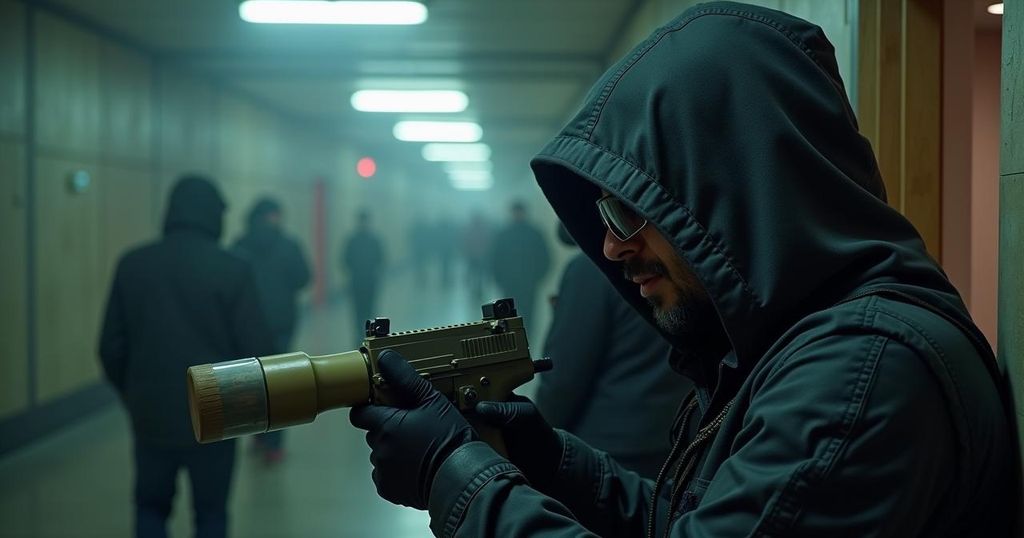Israeli airstrikes in Beirut killed 22 and injured 117, targeting Hezbollah chief Wafiq Safa. The assault has garnered global condemnation and led to calls for a cease-fire, particularly from the US and France, amid ongoing hostilities. Additionally, Iranian military chief Esmail Qaani is being investigated for suspected espionage for Israel following the deaths of prominent Hezbollah leaders.
On Thursday, the Israeli military conducted a series of airstrikes in Beirut, resulting in the deaths of 22 individuals and injuries to 117 others, with the strikes aimed at eliminating Hezbollah chief, Wafiq Safa. Reports indicated that Safa was not present in the targeted buildings, which were wholly destroyed by Israeli bombs. Furthermore, during the operations, Israeli forces also struck the UN peacekeeping headquarters in Naqoura, injuring two peacekeepers who were subsequently hospitalized. The recent clashes mark an escalation in hostilities between Israeli forces and UNIFIL, the United Nations peacekeeping mission in Lebanon. This confrontation follows Israel’s ground invasion initiated on October 1, which was met with resistance from UN peacekeepers along the border. The assault on UN personnel has provoked widespread international condemnation, prompting calls for a cease-fire, even from the United States, which fears an escalation into a broader war involving Iran and Lebanon. The Lebanese UN ambassador intensified calls for an immediate cease-fire, yet the Israeli representative affirmed the continuation of military operations until all alleged Hezbollah activities are neutralized. Since the onset of airstrikes on October 7, over 2,000 individuals in Lebanon have lost their lives, with approximately 10,212 others wounded, as reported by the Lebanese Health Ministry. The conflict continues to be accompanied by ongoing strikes in Gaza, where Israel is targeting militant positions. In a related development, both the United States and France have endorsed strengthening the Lebanese Armed Forces to stabilize the region and ensure peace along the border with Israel. Deputy U.S. Ambassador to the UN, Robert Wood, emphasized that a weakened Lebanon is not the solution, advocating instead for a robust Lebanese state supported by legitimate security forces. Moreover, U.S. Vice President Kamala Harris remarked on the necessity of de-escalation in the Middle East, stating, “We have got to reach a ceasefire.” The situation remains tense, with hopes for a mediated cease-fire having proven elusive amid ongoing violence. In a related matter, Brigadier Esmail Qaani, the chief of Iran’s Revolutionary Guard Corps (IRGC), is currently under investigation on suspicions of espionage for Israeli forces following the deaths of notable Hezbollah leaders, including Hassan Nasrallah. Reports indicate that Qaani has been under house arrest while inquiries about his potential collusion with Israeli intelligence agencies deepen.
The Israel-Iran conflict has intensified significantly in recent months, particularly following Israel’s ground invasions and airstrikes targeting Hezbollah positions in Lebanon, which it deems a terrorist organization. The conflict has led to grave humanitarian crises, including massive casualties and widespread displacement among civilians in both Lebanon and Gaza. Amid this turmoil, international responses are calling for peacekeeping forces to play a more active role and for the strengthening of Lebanese state institutions to create a stabilizing force in the region.
The recent airstrikes by Israel have resulted in significant loss of life and injuries in Lebanon, further escalating tensions in an already volatile region. International condemnation of the attacks, particularly against UN peacekeepers, highlights the need for immediate ceasefire considerations. The inquiry into high-ranking Iranian military officials on allegations of espionage underscores the complexities of the conflict as multiple parties grapple with the ramifications of continued hostility.
Original Source: www.hindustantimes.com







